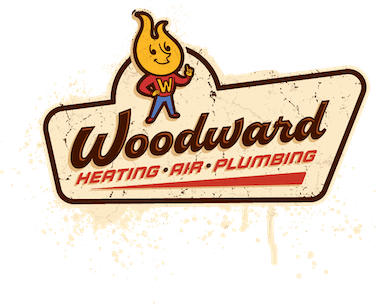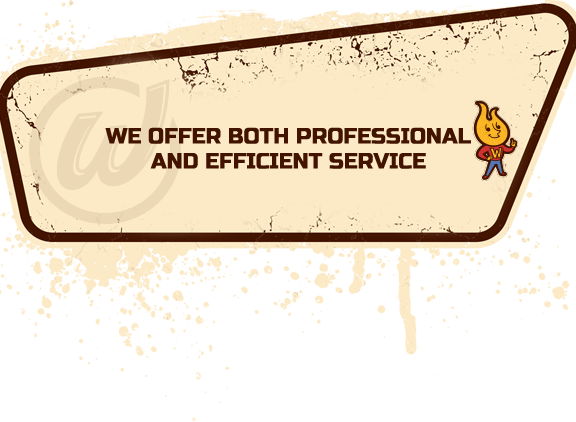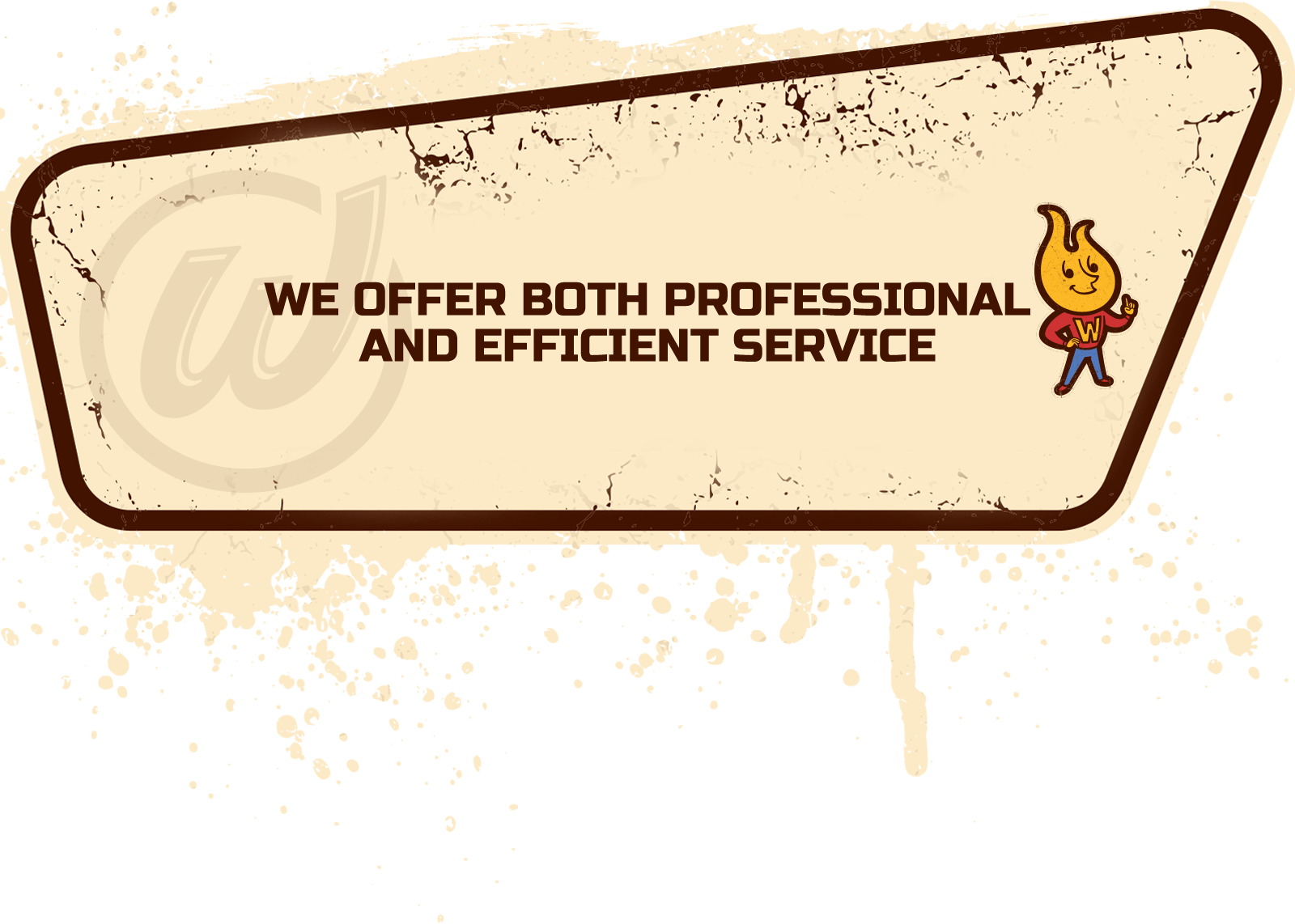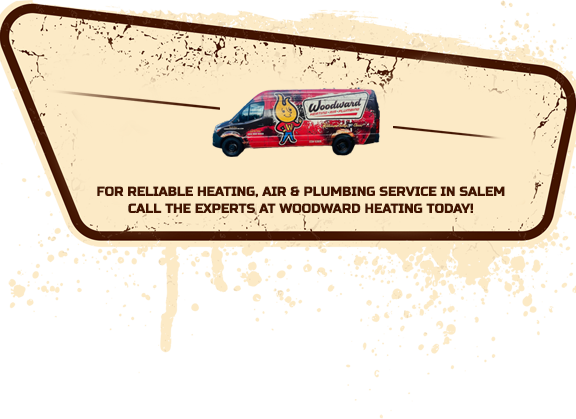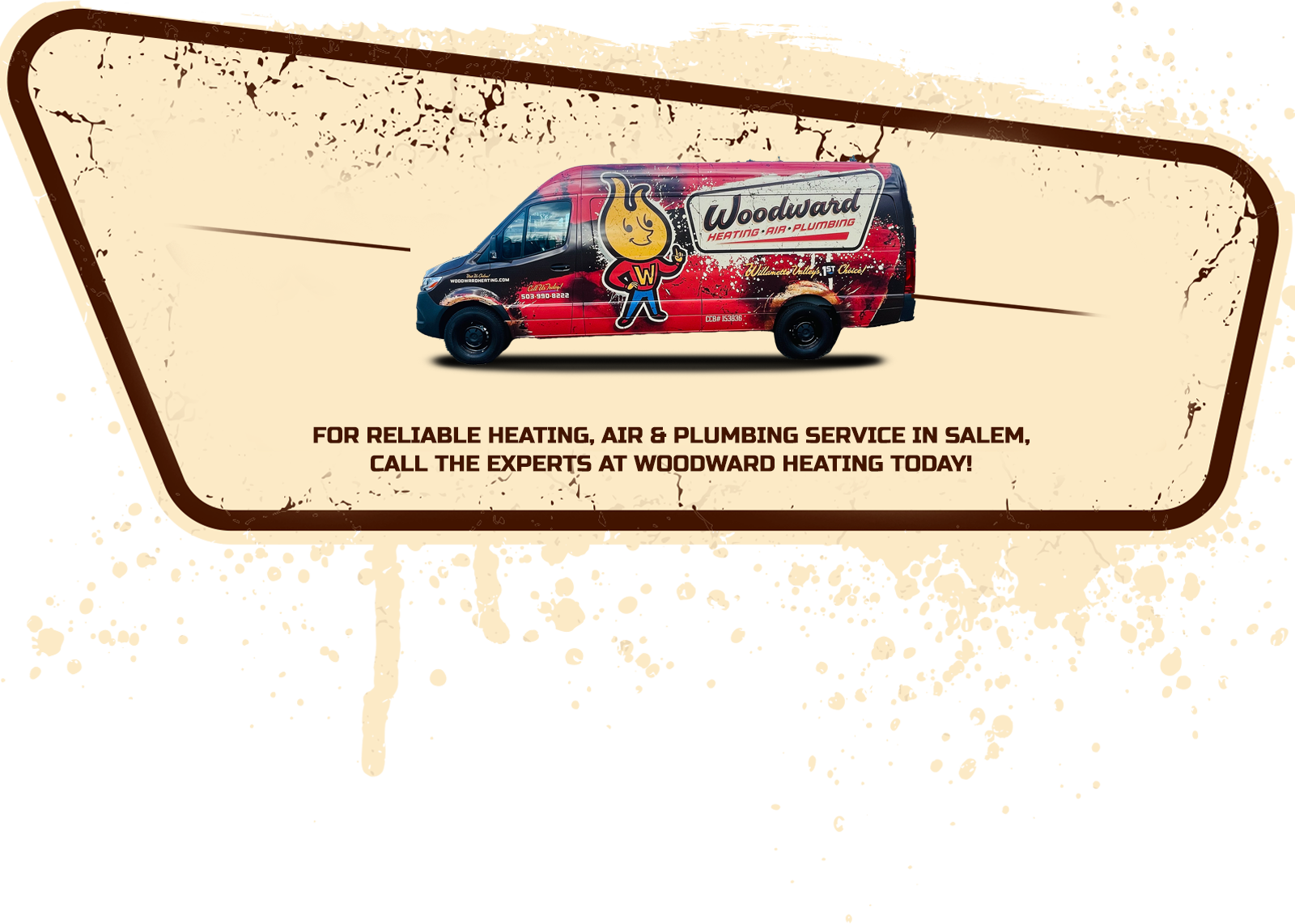Salem Air Quality Services
Breathe Better & Prevent Allergy Symptoms
Have you recently installed more insulation or worked on sealing your property to gain better efficiency from your heating and/or cooling systems? While this may save you money on your energy bills and increase the lifespan of your HVAC systems, it also contributes to poor indoor air quality. While it may be commonly thought that outdoor air is dirtier than the air within your home or business, this is not the case. The Environmental Protection Agency (EPA) has determined that the air within our homes or businesses often contains five times more contaminants than the air outside. This is because well-sealed properties create breeding grounds for many of the common pollutants that cause allergy symptoms and other respiratory conditions. Fortunately, our Salem air quality experts at Woodward Heating Air Plumbing can assist you by installing air purifiers, dehumidifiers, and/or humidifiers to ensure you’re breathing fresh, clean air.
We offer free estimates on new installations. Give us a call at (503) 990-8222 or contact us online for more information.
Products We Install
At Woodward Heating Air Plumbing, our NATE-certified technicians are experienced in installing products from many of the industry’s leading brands. We’ve been business for 30 years and have a wealth of knowledge about each product we carry. When you’re deciding which product would be best for you, our Salem air quality experts will discuss your needs, the unique advantages and features of each one, and your budget with you to help you arrive at a decision.
We carry and install the following air quality products:
UVC Lights
These are germicidal lights that are easily installed and can combat many biological contaminants, such as mold and bacteria. They help make your air healthier and safer without emitting any ozone, which can hurt your lungs.
Once they’re installed, they destroy the cell structure of common pollutants and prevent mold, bacteria, and other contaminants from growing and/or spreading throughout your property. Because mold and fungi living within your ductwork will be killed, it will also help your HVAC remain clean and running at its peak efficiency.
Air Purification
If you’re trying to combat allergy symptoms or asthma, an air purification system might be just what you need. An air purification system is a great way to improve your home or business’ comfort. Using UVA light technology and a specialized filter, it delivers the same quality of air you’d find in a hospital. This means it removes harmful chemical vapors, reduces dust and pet dander, eliminates harmful ozone and bacteria, and prevents foul odors from occurring.
Reme HALO® Whole Home In-Duct Air Purifier
Ready to purify every cubic inch of your central ac system’s reach?! The Reme HALO® whole home in-duct air purifier is the best solution to air purification and is about to combat all 3 categories of indoor air pollutants:
- Gases
- Microbial
- Particulates
You can breathe easy knowing the fresh air you breathe outside can be achieved within your home without opening any windows.
Honeywell Air Filtration System
Using an advanced 3-step filtration system, these low maintenance products are capable of deactivating 99% of captured particles. So if you have a family member or employee that suffers from severe allergies or respiratory issues, the Honeywell Air Filtration System will help them breathe easier and feel more comfortable.
Take advantage of our current special offers. Call (503) 990-8222 for more information.
FAQ
What are some common indoor air pollutants?
Common indoor air pollutants include dust, pollen, pet dander, mold spores, bacteria, viruses, volatile organic compounds (VOCs) from household products, cigarette smoke, and particulate matter from cooking or combustion appliances.
How can poor indoor air quality affect health?
Poor indoor air quality can lead to various health issues, including respiratory problems such as asthma and allergies, headaches, fatigue, dizziness, eye and throat irritation, and worsened symptoms of existing conditions. Long-term exposure to indoor air pollutants may also increase the risk of developing respiratory diseases and cardiovascular problems.
What are the benefits of installing air purification systems?
Air purification systems help remove harmful pollutants and contaminants from the air, improving indoor air quality and creating a healthier environment. These systems can reduce allergy and asthma symptoms, eliminate unpleasant odors, kill bacteria and viruses, and create a more comfortable living or working space.
How often should air filters be replaced?
The frequency of air filter replacement depends on several factors, including the type of filter, the level of air pollution in your home, and the manufacturer’s recommendations. Generally, standard air filters should be replaced every 30 to 90 days, while high-efficiency filters may last up to 6 to 12 months.
Can indoor air quality be improved without installing additional equipment?
Yes, there are several ways to improve indoor air quality without installing additional equipment. These include keeping your home clean and free of dust and clutter, ventilating your home by opening windows and using exhaust fans, using natural cleaning products, maintaining a healthy humidity level, and avoiding smoking indoors.
How can I determine if I need an air purifier or other indoor air quality equipment?
If you or your family members experience frequent allergy symptoms, respiratory issues, or discomfort indoors, it may indicate poor indoor air quality. Additionally, if you notice musty odors, excessive dust buildup, or visible mold growth in your home, it’s advisable to consult with an indoor air quality specialist to assess your needs and recommend appropriate solutions.
What role does humidity play in indoor air quality?
Humidity levels can significantly impact indoor air quality. High humidity can promote mold and mildew growth, while low humidity can lead to dry skin, irritated respiratory passages, and increased susceptibility to respiratory infections. Maintaining balanced humidity levels between 30% to 50% is ideal for optimal indoor air quality.
Are there natural ways to improve indoor air quality?
Yes, several natural methods can help improve indoor air quality. These include adding houseplants that can help filter and purify the air, such as spider plants, peace lilies, and snake plants. Additionally, using natural air purifiers like activated charcoal and baking soda can help absorb odors and pollutants.
What are the benefits of professional indoor air quality testing?
Professional indoor air quality testing can provide valuable insights into the specific pollutants present in your indoor environment and their concentrations. This information allows for targeted interventions to address air quality issues effectively. Professional testing can also identify hidden sources of contamination and assess overall indoor air quality levels.
Can outdoor air pollution affect indoor air quality?
Yes, outdoor air pollution can infiltrate indoor spaces through ventilation systems, doors, windows, and other openings. Common outdoor pollutants such as particulate matter, ozone, and volatile organic compounds (VOCs) can enter indoor environments and contribute to poor indoor air quality. Proper ventilation and air filtration can help mitigate the impact of outdoor pollution on indoor air quality.
What are some signs that my home may have poor indoor air quality?
Signs of poor indoor air quality include persistent musty odors, visible mold growth, excessive dust accumulation, frequent allergy symptoms, respiratory irritation, headaches, fatigue, and discomfort. If you notice any of these signs, it’s essential to address indoor air quality issues promptly to create a healthier living environment.
Can improving indoor air quality help reduce energy costs?
Yes, improving indoor air quality can lead to energy savings by optimizing HVAC system efficiency. Cleaner air filters and properly maintained HVAC equipment can improve airflow and reduce the workload on heating and cooling systems, resulting in lower energy consumption and reduced utility bills.
